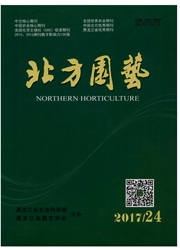

 中文摘要:
中文摘要:
Impatiens necrotic spot virus (INSV) is an important plant virus identified in recent years. Western flower thrip (Frankliniella occidentalis) has been confirmed to be the most efficient vector for INSV. In the present study, Illuminas secondgeneration sequencing technique was used to determine the variation in gene expression at the transcriptome level in western flower thrip before and after infection with INSV. By aligning 168 188 unigenes of western flower thrip to the NCBI protein database, 47 558 unigenes were annotated, accounting for 28.27% of the total. Species classification revealed that 58.7% of the annotated unigenes of western flower thrip did not match any other species, and 15.4% of had a match in Zootermopsis navadensis, 12.4% in Mus musculus, 7.3% in Mustela putorius, 3.4% in Theileria parva, and 2.7% in Tribolium castaneum. By analyzing DEGs between INSVfree and INSVcarrying western flower thrips, we found that 11 genes were upregulated, and 9 genes were downregulated in western flower thrip after INSV infection. In addition, cell cycle and ubiquitinproteasome pathway in western flower thrip were significantly infected by INSV infection.
 同期刊论文项目
同期刊论文项目
 同项目期刊论文
同项目期刊论文
 期刊信息
期刊信息
